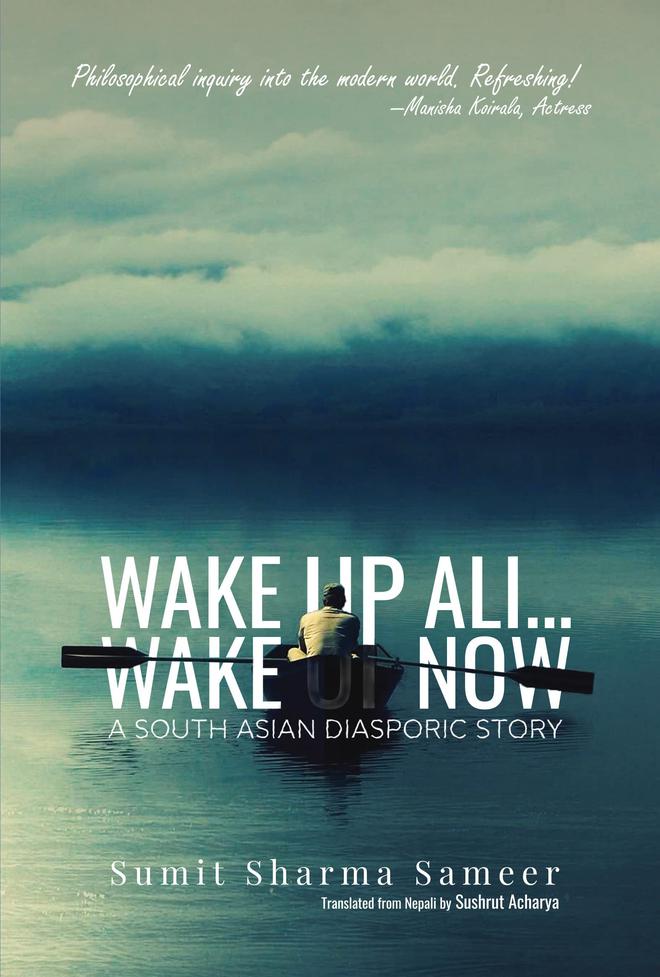The diasporic concerns are omnipresent; they can change in scale but never disappear. The book Wake Up Ali... Wake Up Now - A South Asian Diasporic Story is not just a migrant’s search for identity but a quest for the human identity as well
Sumit is a Nepali who did his under-graduation in Loyola College in Chennai and pursued higher studies at the London School of Economics, UK and Queen’s University, Canada.

Wake Up... was written in Nepali and translated into English by Sushrut Acharya. Speaking from Kathmandu, Sumit explains why he got someone else to translate his book, “I think the life of fiction should not be dull and you need mastery of language, philosophy and imagination to make it interesting. I’m more comfortable bringing these elements in my mother tongue. Hence, I didn’t attempt the translation myself. Perhaps if I write non-fiction, I’ll do it on my own.”
The book traces the aspirational journey of a middle-class Pakistani family, the quintessential immigrants’ tribulations and their yearning to reconnect with their roots. In choosing Pakistan as a backdrop for his book, Sumit says one transcends national borders in today’s age in many different ways. “It is like trying to box in a single identity and yet we all know that we live with multiple identities. We travel, interact and learn. And, my experience says that though there are various dissimilarities, the new political economy has created some similarities among South Asians. I wanted to write about that. For example, the issues of migration and climate change.”
Commonality factor
The book took five years to complete as he did a lot of introspection into the lives of the characters. Although consciously Sumit did not delve deeply into the cultural complexities of the countries from which he picked up the characters, he touched upon the commonalities within and among the lower middle-class families of South Asia that are challenged by the issue of migration on a day-to-day basis. “I feel we exhibit a common story, struggle and sensibilities while dealing with the common problem. In that sense, Ali from Pakistan will not be different from Ranjan from Nepal or Riya from India (characters from the book). That understanding is my main source. Nevertheless, I relied heavily on research as well as interaction with the Nepali, Pakistani and Indian diasporas while I was in Canada.”
Speaking about the commonalities, Sumit says, “The longing for one’s home country, the idea of displacement, alienation and the generational clash faced by immigrant families, and the struggle against ‘racism’ are some of the common emotions that bind us together despite our sub-cultural and religious diversities.”
Sumit says an opportunity to self-introspect was the trigger to write the book. I think introspection is a fundamental act for humans. “A middle-aged Ali (protagonist of the book) introspects on his identity and his space in the world, his relationship with his inner world and the outside world. My book is not autobiographical in the sense that the story has been picked up from somebody’s life but I think many fictional works are autobiographical in the sense that authors sometimes share their worldviews and perspectives through various characters.”
As a social science researcher, Sumit wants to engage with subjects that motivate social change in society in his future projects. Genres like suspense, thrillers, and romance can wait, says Sumit.










